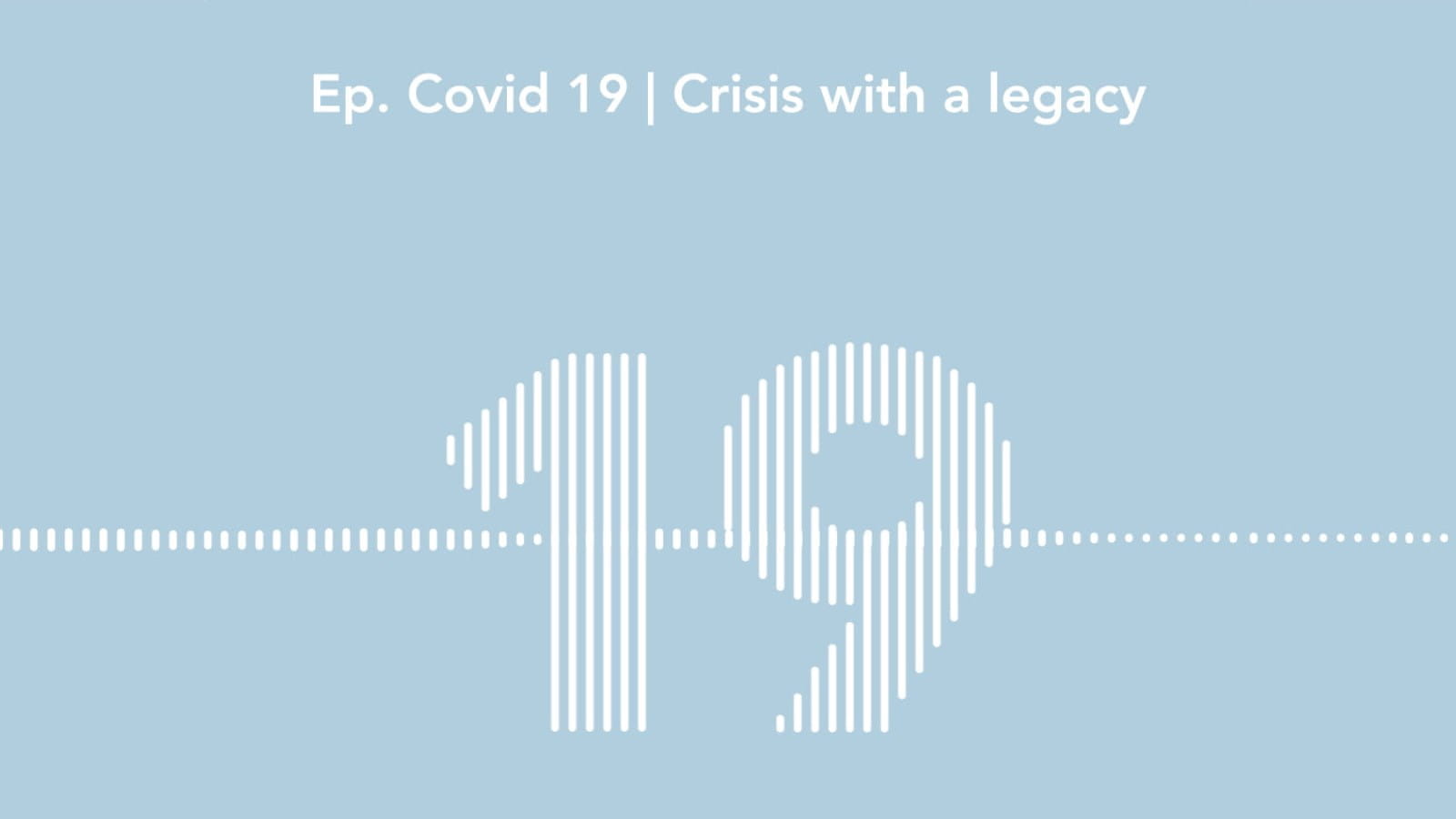ICAEW’s More Than a Number podcast explores the biggest issues and thought-provoking ideas in the world of business and finance.
The latest episode, COVID-19 – Crisis With a Legacy, examines the impact of coronavirus and explores its longer-term legacy. Here are five surprising insights from the episode. Listen to COVID-19 – crisis with a legacy.
1. Pollution fell just as dramatically during the 2008/09 financial crisis, and is rebounding as quickly too.
Global daily emissions of CO2 fell by 17% the peak of the lockdown when most of the world had been instructed to stay indoors.
However, Thomas Delgado founder of air cleaning company Pollution Solution, warned that for all the positive headlines about dramatic falls in greenhouse gases and promises of a healthier tomorrow, we’ve heard this all before.
“It’s all too often that post economic crisis, pollution levels spike considerably in the aftermath as a result of companies needing to be proactive,” he said. “It would be a real shame for us to fall into that trap of 2008/09, when the economy did bounce back, lo and behold, pollution levels skyrocketed.”
2: A British food company created a ‘cash war room’ and raised $200m during the height of the crisis
UK food and beverage giant Tate & Lyle was doing well before COVID-19, but the multinational company had to move quickly when turmoil brought about two sudden and connected trends; millions of us stopped eating at restaurants or large events – and turned to home cooking instead.
Rather than delay the inevitable, the company, once famed for its sugar production, closed its books and released its financial earnings during the lockdown, something it would never have previously considered, the company’s CFO Imran Nawaz told More Than a Number.
“We re-focused efforts on protecting our strong financial position by establishing a ‘cash war room’,” he said. “We were checking capital requirements daily to ensure everything was running smoothly, and raised $200m of extra debt in a low interest rate marketplace.”
This bold action was just the sweetener the company needed to reposition itself to supply new markets and strengthen its hold on the ingredient supply chain.
3. It took just two months for a team of animal disease diagnostics specialists to have human COVID-19 samples ready for testing
Iceni Diagnostics, a small team of genetic researchers based in Norwich, UK, discovered that the equine influenza virus they were studying and coronavirus both infect animals by recognition of carbohydrates on the surface of cells.
With the entire world demanding testing, Iceni Diagnostics quickly made the complex switch from horses to people. Co-founder and CEO Prof. Rob Field told More Than a Number his team learned how they had to adapt to get something out of the challenging biomedical marketplace.
“Within weeks we had changed the focus of the business from equine influenza to human coronavirus. We pivoted the company and went from nowhere to having samples ready for assessment in the labs at Norwich hospital within two months. We’ve taken huge steps forward that we never expected.”
It made Iceni Diagnostics a household name in biomedical circles almost overnight, and they are now talking to major international companies interested in their technology.
4. Content for “the lockdown generation” is now a thing
Streaming services have boomed in lockdown, but the business of actually making those TV and movies has ground to a halt, said Lucas Ochoa from Pulse Films in London. As a result, the industry has had to shift its focus towards smaller and more intimate forms of storytelling in response to both the restrictions, and the shifting tastes of consumers.
“The biggest challenge in all this is forward planning, as we need to make assumptions about production on a relative degree of uncertainty,” explained Lucas. Coronavirus has introduced shifting sands, he said, “and this ever-present uncertainty is being felt in budgeting and scheduling demands, which are guided by the scripts that are written.”
Film and TV producers have had to move with the times just like every other business, so end-of-the-world sci-fi dramas are out, with people having enough dystopian misery outside their doors, and happier, more local stories are in.
5. Consumer spending accounts for two-thirds of the UK economy
There are very significant changes in consumer spending, and businesses who wake-up to this and shift their business models quickly in response stand a far better chance of survival, the CBI’s deputy chief economist Anna Leach told the podcast.
“Any fundamental changes in consumer spending have huge implications for businesses across the whole economy,” she said. “The companies that will make it through the crisis are those who are agile and responsive, but also keep some capacity in their pocket and plan for the long term.”
